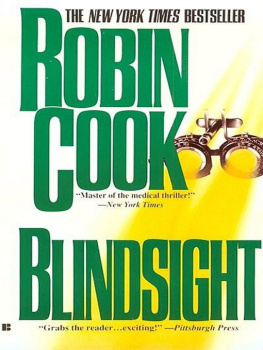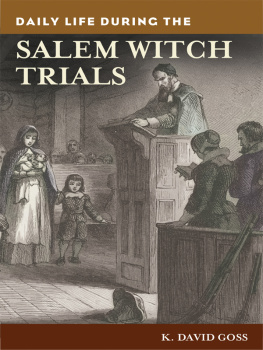Robin Cook - Acceptable Risk
Here you can read online Robin Cook - Acceptable Risk full text of the book (entire story) in english for free. Download pdf and epub, get meaning, cover and reviews about this ebook. genre: Detective and thriller. Description of the work, (preface) as well as reviews are available. Best literature library LitArk.com created for fans of good reading and offers a wide selection of genres:
Romance novel
Science fiction
Adventure
Detective
Science
History
Home and family
Prose
Art
Politics
Computer
Non-fiction
Religion
Business
Children
Humor
Choose a favorite category and find really read worthwhile books. Enjoy immersion in the world of imagination, feel the emotions of the characters or learn something new for yourself, make an fascinating discovery.

- Book:Acceptable Risk
- Author:
- Genre:
- Rating:4 / 5
- Favourites:Add to favourites
- Your mark:
- 80
- 1
- 2
- 3
- 4
- 5
Acceptable Risk: summary, description and annotation
We offer to read an annotation, description, summary or preface (depends on what the author of the book "Acceptable Risk" wrote himself). If you haven't found the necessary information about the book — write in the comments, we will try to find it.
Acceptable Risk — read online for free the complete book (whole text) full work
Below is the text of the book, divided by pages. System saving the place of the last page read, allows you to conveniently read the book "Acceptable Risk" online for free, without having to search again every time where you left off. Put a bookmark, and you can go to the page where you finished reading at any time.
Font size:
Interval:
Bookmark:

Robin Cook
Acceptable Risk
Saturday, February 6, 1692
Spurred on by the penetrating cold, Mercy Griggs snapped her riding crop above the back of her mare. The horse picked up the pace, drawing the sleigh effortlessly over the hard-packed snow. Mercy snuggled deeper into the high collar of her sealskin coat and clasped her hands together within her muff in a vain attempt to shield herself from the arctic air.
It was a windless, clear day of pallid sunshine. Seasonally banished to its southern trajectory, the sun had to struggle to illuminate the snowy landscape locked in the grip of a cruel New England winter. Even at midday long violet shadows extended northward from the trunks of the leafless trees. Congealed masses of smoke hung motionlessly above the chimneys of the widely dispersed farmhouses as if frozen against the ice blue polar sky.
Mercy had been traveling for almost a half hour. Shed come southwest along the Ipswich Road from her home at the base of Leachs Hill on the Royal Side. Shed crossed bridges spanning the Frost Fish River, the Crane River, and the Cow House River and now entered into the Northfields section of Salem Town. From that point it was only a mile and a half to the town center.
But Mercy wasnt going to town. As she passed the Jacobs farmhouse, she could see her destination. It was the home of Ronald Stewart, a successful merchant and shipowner. What had drawn Mercy away from her own warm hearth on such a frigid day was neighborly concern mixed with a dose of curiosity. At the moment the Stewart household was the source of the most interesting gossip.
Pulling her mare to a stop in front of the house, Mercy eyed the structure. It certainly bespoke of Mr. Stewarts acumen as a merchant. It was an imposing, multi-gabled building, sheathed in brown clapboard and roofed with the highest-grade slate. Its many windows were glazed with imported, diamond-shaped panes of glass. Most impressive of all were the elaborately turned pendants suspended from the corners of the second-floor overhang. All in all the house appeared more suited to the center of town than to the countryside.
Confident that the sound of the sleigh bells on her horses harness had announced her arrival, Mercy waited. To the right of the front door was another horse and sleigh, suggesting that company had already arrived. The horse was under a blanket. From its nostrils issued intermittent billows of vapor that vanished instantly into the bone-dry air.
Mercy didnt have long to wait. Almost immediately the door opened and within the doorframe stood a twenty-seven-year-old, raven-haired, green-eyed woman whom Mercy knew to be Elizabeth Stewart. In her arms she comfortably cradled a musket. From around her sides issued a multitude of childrens curious faces; unexpected social visits in isolated homes were not common in such weather.
Mercy Griggs, called the visitor. Wife of Dr. William Griggs. Ive come to bid you good day.
Tis a pleasure, indeed, called Elizabeth in return. Come in for some hot cider to chase the chill from your bones. Elizabeth leaned the musket against the inside doorframe and directed her oldest boy, Jonathan, age nine, to go out to cover and tether Mrs. Griggs horse.
With great pleasure Mercy entered the house, and, following Elizabeths direction, turned right into the common room. As she passed the musket, she eyed it. Elizabeth, catching her line of sight, explained: Tis from having grown up in the wilderness of Andover. We had to be on the lookout for Indians all hours of the day.
I see, Mercy said, although a woman wielding a musket was apart from her normal experience. Mercy hesitated for a moment on the threshold of the kitchen and surveyed the domestic scene, which appeared more like a school-house than a home. There were more than a half dozen children.
On the hearth was a large, crackling fire that radiated a welcome warmth. Enveloping the room was a mixture of savory aromas: some of them were coming from the kettle of pork stew simmering on its lug pole over the fire; others were rising from a large bowl of cooling corn pudding; but most were coming from the beehive oven built into the back of the fireplace. Inside, multiple loaves of bread were turning a dark, golden brown.
I hope in Gods name I am not a bother, Mercy said.
Heavens, no, Elizabeth replied as she took Mercys coat and directed her to a ladder-back chair near the fire. Youre a welcome reprieve from the likes of these unruly children. But you have caught me baking, and I must remove my bread. Quickly she hefted a long-handled peel, and with short, deft thrusts picked up the eight loaves one by one and deposited them to cool on the long trestle table that dominated the center of the room.
Mercy watched Elizabeth as she worked, remarking to herself that she was a fine-looking woman with her high cheekbones, porcelain complexion, and lithesome figure. It was also apparent she was accomplished in the kitchen by the way she handled the bread-making and with the skill she evinced stoking the fire and adjusting the trammel holding the kettle. At the same time Mercy sensed there was something disturbing about Elizabeths persona. There wasnt the requisite Christian meekness and humbleness. In fact Elizabeth seemed to project an alacrity and boldness that was unbecoming of a Puritan woman whose husband was away in Europe. Mercy began to sense that there was more to the gossip that shed heard than idle hearsay.
The aroma of your bread has an unfamiliar piquancy, Mercy said as she leaned over the cooling loaves.
Tis rye bread, Elizabeth explained as she began to slip eight more loaves into the oven.
Rye bread? Mercy questioned. Only the poorest farmers with marshy land ate rye bread.
I grew up on rye bread, Elizabeth explained. I do indeed like its spicy taste. But you may wonder why I am baking so many loaves. The reason is I have in mind to encourage the whole village to utilize rye to conserve the wheat supplies. As you know, the cool wet weather through spring and summer and now this terrible winter has hurt the crop.
It is a noble thought, Mercy said. But perhaps it is an issue for the men to discuss at the town meeting.
Elizabeth then shocked Mercy with a hearty laugh. When Elizabeth noticed Mercys expression, she explained herself: The men dont think in such practical terms. They are more concerned with the polemic between the village and the town. Besides, there is more than a poor harvest. We women must think of the refugees from the Indian raids since it is already the fourth year of King Williams War and theres no end in sight.
A womans role is in the home Mercy began, but she trailed off, taken aback by Elizabeths pertness.
Ive also been encouraging people to take the refugees into their homes, Elizabeth said as she dusted the flour from her hands on her smocked apron. Weve taken in two children after the raid on Casco, Maine, a year ago last May. Elizabeth called out sharply to the children and interrupted their play by insisting they come to meet the doctors wife.
Elizabeth first introduced Mercy to Rebecca Sheaf, age twelve, and Mary Roots, age nine. Both had been cruelly orphaned during the Casco raid, but now both appeared hale and happy. Next Elizabeth introduced Joanna, age thirteen, Ronalds daughter from a previous marriage. Then came her own children: Sarah, age ten; Jonathan, age nine; and Daniel, age three. Finally Elizabeth introduced Ann Putnam, age twelve; Abigail Williams, age eleven; and Betty Parris, age nine, who were visiting from Salem Village.
Next pageFont size:
Interval:
Bookmark:
Similar books «Acceptable Risk»
Look at similar books to Acceptable Risk. We have selected literature similar in name and meaning in the hope of providing readers with more options to find new, interesting, not yet read works.
Discussion, reviews of the book Acceptable Risk and just readers' own opinions. Leave your comments, write what you think about the work, its meaning or the main characters. Specify what exactly you liked and what you didn't like, and why you think so.












